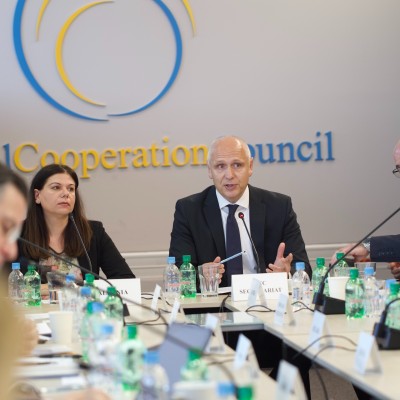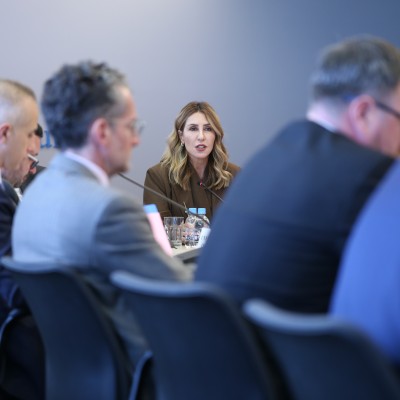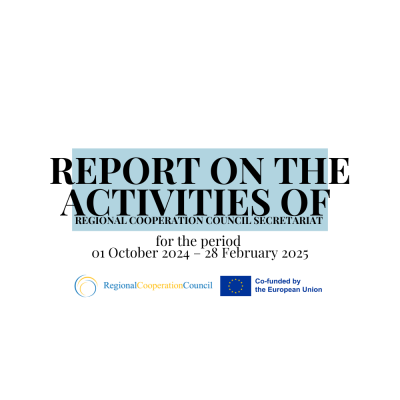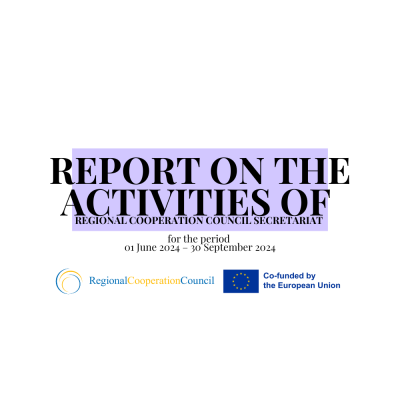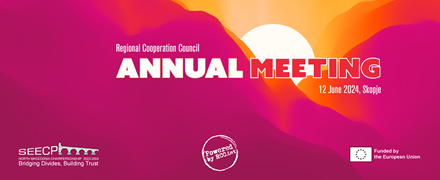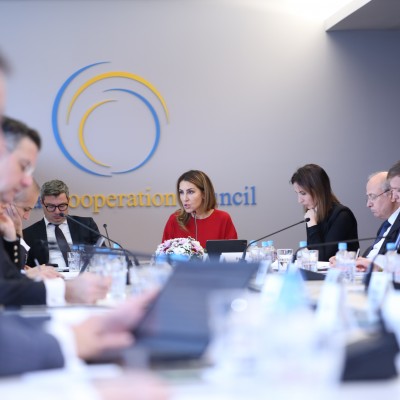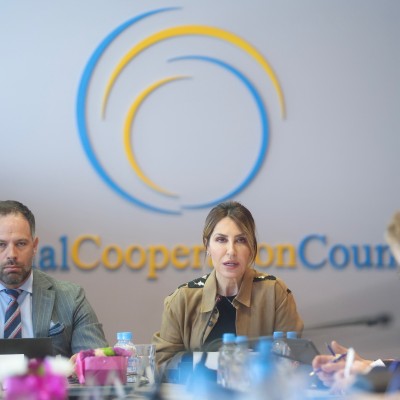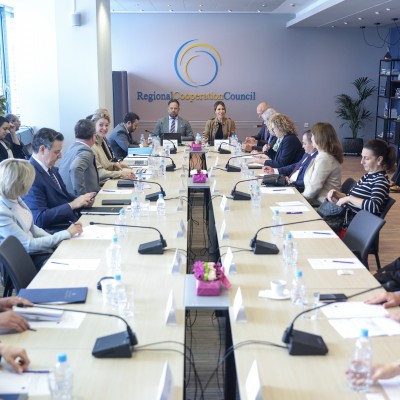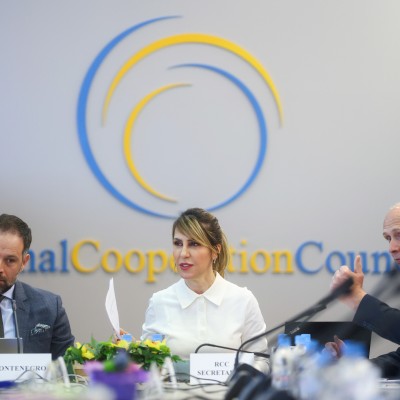The Board of the Regional Cooperation Council (RCC Board) meets three times a year and is chaired by the Secretary General. RCC Board meetings are convened and prepared by the Secretary General in coordination with the incumbent SEECP Chairmanship-in-Office (C-i-O). The RCC Board meets at the level of RCC National Coordinators, who are senior civil officials in each RCC Board Participant responsible for coordination of RCC relevant issues within their respective administrations.
The RCC Board provides operational guidance and supervision of the organization in between the Annual Meetings. The Board accepts the Annual Report and regular reports of the Secretary General and adopts the triannual Strategy and Work Programme, reviews progress in the course of the year and provides proposals and initiatives with the view of further development of regional cooperation. The Board consists of those RCC Participants contributing to the budget of the RCC Secretariat as well as the European Union, represented by a representative of the High Representative of the Union for Foreign Affairs and Security Policy and a representative of the European Commission.
Decisions of the RCC Board are taken by consensus. The working language of RCC meetings as well as of the Secretariat is English.
The Annual Meeting of the Regional Cooperation Council (RCC) is held back-to-back with the SEECP Summit. It is co-chaired by the Secretary General and the Foreign Minister of the SEECP Participant holding the Chairmanship-in-Office (C-i-O).
The Annual Meeting of the RCC meets at a high political level. It ensures strategic coordination and development of regional cooperation processes, reviews and endorses the Secretary General’s Annual Report on regional cooperation in South East Europe as well as the organization’s Strategy and Work Programme. The RCC Annual Meeting is open to guests upon request and/or the initiative of the Secretary General in consultations with the incumbent SEECP C-i-O and following the consent of the RCC Board.
Albania
Austria
Bosnia and Herzegovina
Bulgaria
Czech Republic
Croatia
European Union (EU), represented by a representative of the High Representative of the Union for Foreign Affairs and Security Policy and a representative of the European Commission
Germany
France
Greece
Hungary
Italy
Ireland
Kosovo*
Latvia
Montenegro
North Macedonia
Norway
Romania
Serbia
Slovenia
Sweden
Switzerland
Türkiye
United States of America
* This designation is without prejudice to positions on status, and is in line with UNSCR 1244 and the ICJ Opinion on the Kosovo declaration of independence.


